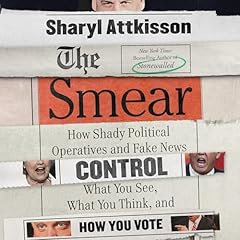
Flat Earth News
Failed to add items
Add to Cart failed.
Add to Wish List failed.
Remove from wishlist failed.
Adding to library failed
Follow podcast failed
Unfollow podcast failed
Audible Standard 30-day free trial
Buy for $24.94
-
Narrated by:
-
Steven Crossley
-
By:
-
Nick Davies
Working with a network of off-the-record sources, Davies uncovered the story of the prestigious "Sunday" newspaper which allowed the CIA and MI6 to plant fiction in its columns; the newsroom which routinely rejects stories about black people; the respected paper that hired a professional fraudster to set up a front company to entrap senior political figures; the newspapers which support law and order while paying cash bribes to bent detectives.
Davies names and exposes the national stories which turn out to be pseudo events manufactured by the PR industry, and the global news stories which prove to be fiction generated by a new machinery of international propaganda. He shows the effect of this on a world where consumers believe a mass of stories which, in truth, are as false as the idea that the Earth is flat - from the millennium bug to the WMD in Iraq - tainting government policy, perverting popular belief.
With the help of researchers from Cardiff University, who ran a ground-breaking analysis of our daily news, Davies found most reporters, most of the time, are not allowed to dig up stories or check their facts - a profession corrupted at the core.
©2008 Nick Davies (P)2009 WF Howes LtdListeners also enjoyed...




















Informative
Something went wrong. Please try again in a few minutes.
Well rounded, authoritative and insightful
Something went wrong. Please try again in a few minutes.
Would you recommend this book to a friend? Why or why not?
I recommend this book to anyone interested in the inner workings of the press, and sound explanations for the increasing amount of "churnalism" over originally researched and fact-tested stories. The book divulges very interesting mechanisms behind the sway of PR-people over the media, the economy of fast and readable headlines, and unscrupulous wartime coverage in favor of Irak 1 and 2 despite the press having solid sources saying that Hussein had no WMDs.Any additional comments?
Unfortunately, that is only half the book. The other half concerns frontal attacks on particular British Fleet Street Newspapers. The author has his own bones to pick combined with solid resarch based on personal experience and many professional contacts. This sometimes feels a bit personal, but the big problem is that those parts are largely irrelevant to readers outside the UK, even if meticulously researched and easy to read. In conclusion, this could have been a five-star listen for me if an "international edition" of maybe 9 hours was available,. If you aren't in Britain, you might get bored with Fleet Street name games.Two books in one - half only about UK newspapers
Something went wrong. Please try again in a few minutes.
A scathing critique of the news media
Something went wrong. Please try again in a few minutes.
probably better in print
Something went wrong. Please try again in a few minutes.


